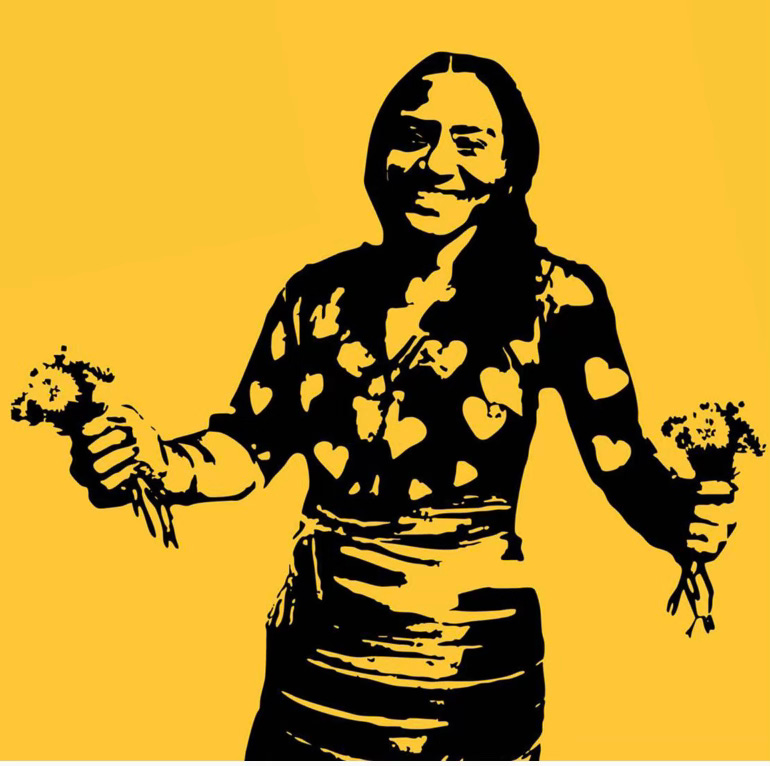We Are Not Your Scapegoats: In Memoriam to Tamima Nibras Juhar
TRANSCEND MEMBERS, 15 Sep 2025
Raïs Neza Boneza – TRANSCEND Media Service
5 Sep 2025 – In Norway, as across much of Europe, the right wing sharpens its weapons on the backs of the vulnerable. Immigration, Islam, Blackness — these words have been turned into alarms, into shadows that politicians project against the wall to frighten an anxious electorate. Tamima Nibras Juhar’s name, her life, her memory — become caught inside this storm. She stands not only as an individual but as a mirror reflecting the pattern that never dies: when a society needs someone to blame, it always finds its way back to us.

Doesn’t matter if the problem is unemployment, crime, cultural change, or political fatigue — the finger swings toward immigrants, toward Muslims, toward Black bodies. Norway, a nation that loves to see itself as a beacon of humanitarianism, suddenly forgets history the moment its fears need a scapegoat.
But this is not new. It is a tradition — one with roots deep in slavery and empire.
The scapegoating of Black people did not begin in Kristiania. It began when human beings were chained, shipped, and sold to build wealth for others.
Let remember that when earlier the colonies won their «independence» who was blamed for their poverty later? Not the colonizers, not the profiteers — but the formerly enslaved and colonized nations, who had nothing but a piece of cloth on their backs. Being Black was cast as the threat, rather than the structural racism that is rotted in the global society from within.
Fast-forward to today: when economies tremble, migrants are to blame. When schools fail, diversity is to blame. When crime rises, Blackness is to blame. When housing collapses, refugees are to blame. This is not logic. It is scapegoating. A centuries-old strategy that protects the powerful and punishes the powerless.
The Norwegian right’s obsession with immigration, as Theory Brief makes clear, is not about facts. Immigration has not “destroyed” Norway. Refugees have not emptied the treasury. Muslims have not dismantled democracy. But the narrative works. Why? Because it provides a simple villain. Because it spares Norwegians from confronting deeper truths: that inequality is widening, that housing speculation drives instability, that neoliberal economics fractures communities, that climate change — not culture — is reshaping the nation.
Instead of addressing those structural crises, the easy answer is to recycle an old myth: the outsider is to blame.
And so, my beloved Tamima, people like you become the target. Your very presence is turned into a problem. Your faith becomes suspicion. Your migration becomes a threat.
But let us connect the dots. Why do people migrate? Why do Somali, Sudanese, Congolese, Afghans, Syrians, Iraqis, Eritreans go north? Because imperialism and corporate greed have already gone south. The mines of Congo, the oil of Iraq, the rare earths of Afghanistan, the fisheries off Somalia — all stripped, privatized, poisoned, and exploited by the same “developed” nations who now complain of refugees at their door.
Norway’s oil wealth is no innocent fortune. The very prosperity that builds the welfare state is tangled in the same global system that destabilizes nations in the Global South. And when those destabilized peoples come seeking survival, they are told: You are the problem. You are the threat. You are too many, too different, too Muslim, too dark. It is hypocrisy raised to the level of policy.
Colonization erased entire worlds. Ask the Arawaks, the Caribs, the Sub-Saharan Africans, the Indigenous of the Americas. Their known world disappeared. Today, migrants arrive with fragments of their erased worlds, carrying the last threads of identity, refusing to be empty shells. They adapt, yes, but they also resist assimilation into silence. And that resistance makes them dangerous to a system that would prefer obedience in silence.
But as history teaches us, the disappearance of the known world does not mean death. It means invention. Out of erasure comes creation. Out of displacement comes new culture, new solidarity, new survival. That is what frightens the defenders of “purity.” That is why the right obsesses over immigration: not because immigrants destroy, but because immigrants survive, adapt, and endure — proof that the world they cling to is already gone.
Tamima’s memory insists on this: we are not your scapegoats. Not for your housing crisis. Not for your economic anxieties. Not for your cultural insecurities. Not for the guilt of colonialism you refuse to confront.
The real crisis is not immigration. The real crisis is a system addicted to exploitation abroad and scapegoating at home. A system that would rather demonize a hijab in Oslo than face the truth of weapons sales to genocide Palestinian.
So let us speak plainly: We are not here to carry the failures of your politics. No, We are not here to be the screen on which you project your fears. And nor, are we your excuse for dismantling democracy.
The burden of history belongs where it began: with those who enslaved, those who colonized, those who profited, those who still do.
Dear Tamima Nibras Juhar, your name is not a threat. It is a light. It forces Norway to look into a mirror it would rather shatter. And in that mirror is the truth: that racism is not an immigrant problem, but a Norwegian problem. That Islamophobia is not a Muslim problem, but a European problem. That scapegoating will not protect Norway from the collapse of its illusions.
Because the world is changing, whether the right wing fears it or not. The known world is disappearing — and a new one is already being born out of thousand yellow flowers.
And in that new world, we will not carry your blame. We will carry only our truth.

____________________________________________
 Raïs Neza Boneza is the author of fiction as well as non-fiction, poetry books and articles. He was born in the Katanga province of the Democratic Republic of Congo (Former Zaïre). He is also an activist and peace practitioner. Raïs is convener of the TRANSCEND Network for Peace Development Environment for Central and African Great Lakes and uses his work to promote artistic expressions as a means to deal with conflicts and maintaining mental wellbeing, spiritual growth and healing. He has travelled extensively in Africa and around the world as a lecturer, educator and consultant for various NGOs and institutions. His work is premised on art, healing, solidarity, peace, conflict transformation and human dignity issues. Raïs work also as freelance journalist based in Trondheim, Norway. You can reach him at rais.boneza@gmail.com. http://www.raisnezaboneza.no
Raïs Neza Boneza is the author of fiction as well as non-fiction, poetry books and articles. He was born in the Katanga province of the Democratic Republic of Congo (Former Zaïre). He is also an activist and peace practitioner. Raïs is convener of the TRANSCEND Network for Peace Development Environment for Central and African Great Lakes and uses his work to promote artistic expressions as a means to deal with conflicts and maintaining mental wellbeing, spiritual growth and healing. He has travelled extensively in Africa and around the world as a lecturer, educator and consultant for various NGOs and institutions. His work is premised on art, healing, solidarity, peace, conflict transformation and human dignity issues. Raïs work also as freelance journalist based in Trondheim, Norway. You can reach him at rais.boneza@gmail.com. http://www.raisnezaboneza.no
Tags: Anti-immigration, Black Culture, Europe, Islam, Muslims, Right Politics
DISCLAIMER: The statements, views and opinions expressed in pieces republished here are solely those of the authors and do not necessarily represent those of TMS. In accordance with title 17 U.S.C. section 107, this material is distributed without profit to those who have expressed a prior interest in receiving the included information for research and educational purposes. TMS has no affiliation whatsoever with the originator of this article nor is TMS endorsed or sponsored by the originator. “GO TO ORIGINAL” links are provided as a convenience to our readers and allow for verification of authenticity. However, as originating pages are often updated by their originating host sites, the versions posted may not match the versions our readers view when clicking the “GO TO ORIGINAL” links. This site contains copyrighted material the use of which has not always been specifically authorized by the copyright owner. We are making such material available in our efforts to advance understanding of environmental, political, human rights, economic, democracy, scientific, and social justice issues, etc. We believe this constitutes a ‘fair use’ of any such copyrighted material as provided for in section 107 of the US Copyright Law. In accordance with Title 17 U.S.C. Section 107, the material on this site is distributed without profit to those who have expressed a prior interest in receiving the included information for research and educational purposes. For more information go to: http://www.law.cornell.edu/uscode/17/107.shtml. If you wish to use copyrighted material from this site for purposes of your own that go beyond ‘fair use’, you must obtain permission from the copyright owner.
Join the discussion!
We welcome debate and dissent, but personal — ad hominem — attacks (on authors, other users or any individual), abuse and defamatory language will not be tolerated. Nor will we tolerate attempts to deliberately disrupt discussions. We aim to maintain an inviting space to focus on intelligent interactions and debates.